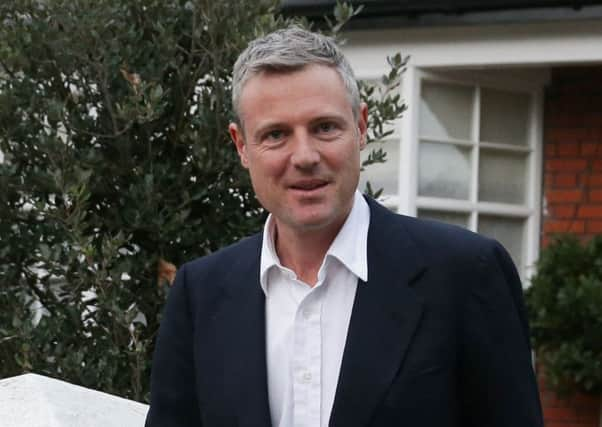Brian Monteith: Whatever happened to the awkward squad in our politics?


Countless reviews were commissioned and recommissioned to punt the decision further down the road, and when Zac Goldsmith the MP for Richmond Park became the Conservative candidate for Mayor it was no surprise when the decision was postponed yet again. Goldsmith, who had wrested the parliamentary division from the Liberal Democrats in 2010, already enjoyed a reputation as a committed environmentalist and was a known opponent of Heathrow having another runway, a prerequisite for winning that constituency.
Goldsmith had gone further than most MPs or parliamentary candidates by stating that if the decision were taken in favour of Heathrow he would force a by-election so that the local electorate could be given a voice. Goldsmith is also a strong supporter of the recall movement that aims to give constituents the ability to force a recall vote on the election of their Member of Parliament if enough people (at an agreed minimum level) can petition for it to happen.
Advertisement
Hide AdAdvertisement
Hide AdSo it came to pass when, following the Transport Secretary’s confirmation of Heathrow as the government’s choice, that Zac Goldsmith announced he would resign his seat and fight a by-election defending his 23,015 majority, not as a Conservative but as an independent. In effect, Goldsmith has recalled himself for not being able to prevent Heathrow’s third runway but seeking endorsement to carry on as the constituents’ representative.
The fallout from that has been the Conservatives have acknowledged his point of principle by deciding not to contest the by-election.
This has been followed by Ukip announcing it too would not take part, on the basis of Goldsmith’s devout support for Brexit and that Ukip policy had been in favour of Gatwick winning the new runway decision.
For both parties there were undoubtedly other considerations – the Conservatives would not wish to split their natural vote and give the Liberal Democrats the chance of winning, while Ukip could see its natural anti-establishment protest vote being squeezed – and with it in the middle of yet another leadership election it is in no position to suffer a bad outcome.
To add to this political pot pourri the Liberal Democrats decided that while they would naturally contest the by-election their campaign would be on the issue of Brexit, refighting the EU referendum, rather than on the issue of Heathrow’s expansion. We shall know the outcome on 2 December but already the polling suggests Goldsmith has 56 per cent support and will hold the seat and so be returned as an independent MP.
Whatever the outcome, Zac Goldsmith’s decision to take such an electoral risk should be heralded as a welcome fillip for democracy. At the heart of the tangible disillusionment that many members of the public feel about today’s politicians is the sense that they do not mean what they say. So when a politician offers to force a by-election on a point of principle and then goes through with it our body politic is re-energised and some degree of faith is restored.
Goldsmith is not the first to take such a risk. David Davis, now the Secretary of State for Brexit, took the unusual step of forcing a by-election over the civil liberties issue of 28-day detention without charge. It caused some embarrassment to David Cameron, the leader of the opposition at the time, as Davis was shadow home secretary.
Nor are all independent MPs, or MSPs, elected in this manner. Martin Bell, the BBC broadcaster, famously defeated Neil Hamilton in the 1997 general election as an independent, and there have been many others – not least Margo Macdonald. It is unusual for such independently minded and branded politicians to disappoint. It is therefore surprising that we do not have more elected, but if one studies how our political parties work and how they can tie up the electoral process in their favour it is not so surprising after all. Founded to combat party domination of our politics the Free-Parliament.org.uk campaign was launched in May to help promote more independent candidates and has created a £6m fund to help candidates be chosen and stand for election.
Advertisement
Hide AdAdvertisement
Hide AdPolitical patronage is another problem that helps to keep parties in control and Free Parliament is proposing that all Ministerial appointments are made from the floor of parliament. This system has proved to be a big success in appointing Westminster parliamentary committees.
Having been elected in the past to the Scottish Parliament as a Conservative & Unionist and then subsequently having become an independent I have seen at first hand the good and bad that political parties can contribute to the democratic process. Putting party advantage before national or local interests is just one of many faults we witness daily.
While I find it hard to believe that parties can be done away with altogether, particularly in the formation of governments, there must surely be more room for independent MPs. That is, independent non-aligned politicians who take no party whip and also people of independent mind who even if they do align themselves with parties are members of what is known as the ‘awkward squad’. There is a need for both and the Scottish Parliament in particular is weak in both respects.
I wish Zac Goldsmith well; he may be defending a large majority but I expect his reputation to be enhanced. Oh, for a Scottish Zac Goldsmith. Is there anyone at Holyrood who would put his or her political career at risk in the same way over a matter of principle?
- Brian Monteith is editor of ThinkScotland.org